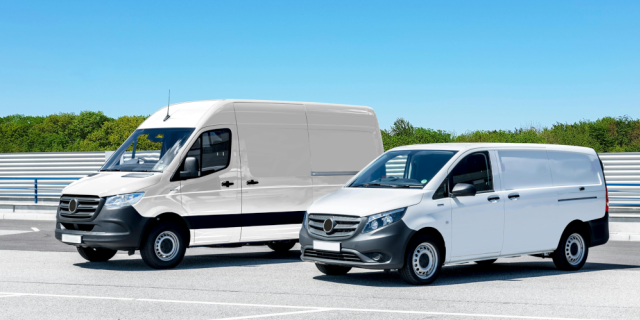Three times denser than traditional fuels, hydrogen presents its self as an interesting option for fuelling larger commercial vehicles such as trucks, busses, boats and planes.
Whilst CO2 intensive processes produce 95% of the current supply of hydrogen, the European Commission is committed to support the development of greener hydrogen as a source of energy to reach climate neutrality by 2050.
Hydrogen and more specifically sustainable hydrogen is very likely destined to become a key element in powering our future while limiting our carbon emissions.
Would you like to know more about hydrogen and how we might use it as a way to store clean, renewable energy? Read more below (available in English only).
Hydrogen and Fuel Cell technology
Hydrogen is one of the universe's most abundant elements. It is also potentially a way to store clean, renewable energy.
Although hydrogen fuel cell technology has existed since 1839, hydrogen still has not achieved widespread popularity. That may change.
As the world moves towards greener energy, the EU has outlined the strategic value of hydrogen technologies in its coordinated action and investment plan.
As Bloomberg New Energy Finance puts it, hydrogen is “versatile, reactive, storable, transportable, clean-burning, and can be produced with low or zero emissions".
Fuel cell technology has many applications. One of the best known is its ability to store power for electric vehicles.
Fuel Cell Electric Vehicles, or FCEVs, are similar to Battery Electric Vehicles in their use of an electric motor to propel the craft. The difference lies in the choice of storage for the potential electrical energy.
While BEVs use batteries to store electricity to drive the motor, FCEVs use pressurized hydrogen fuel, which is combined with oxygen to produce usable electricity as well as clear water emissions, all within the vehicle itself.
Before it can hit the road in a vehicle, hydrogen needs to be produced. In a process called electrolysis, an electric current is applied to water, breaking down its molecules into building blocks - oxygen and hydrogen. Depending on the source of the energy used for electrolysation, hydrogen can be 100% carbon neutral. Yet, electrolysis still lacks efficiency as around half of the energy is lost during the process and is today better suited for places with abundant, sustainable and cheap electricity.
Hydrogen has nearly three times greater energy density than conventional fuels and can refill a tank in less than 5 minutes. This makes this fuel an excellent option to cover long distances.
Still expensive and oriented to early adopters, personal Fuel Cell Electric Vehicles (FCEV) are being piloted. OEMs involved in the development of hydrogen-powered vehicles include Toyota, Hyundai, Honda, BMW, Audi and Renault. All trying to gain a foothold in a market expected to grow 11-fold between 2019 and 2025 to €10 bn. On the operating side, the French Hype is the first taxi service exclusively using FCEVs with over 100 cars.
Similarly to the battery electric vehicle sector, the lack of infrastructure is one of the main obstacles to FCEV adoption.
Hydrogen takes vast amounts of space in its natural, gaseous form. Therefore, it needs to be cooled, pressurized and stored which makes the construction of refuelling stations complex.
By the end of 2019, 470 refuelling stations were in operation worldwide, which is a fraction of the global number of fuel stations and electric vehicle recharge points in operation today. Fossil fuels, however, have had a century-long headstart.
Germany has just over 80 hydrogen fueling stations in its territory, which is by far the largest number of any EU country. Proponents of hydrogen technology hope that with some modifications, today’s diesel and petrol fuel stations might be repurposed to accommodate hydrogen, just the same way many are being retrofitted with natural gas, or with charging stations.
This is particularly relevant for commercial applications, such as trucks and buses that are mainly powered by diesel engines. As of December 2019, over 98% of trucks in the EU ran on diesel.
Several hydrogen car and truck-makers have launched collaborations with distributors of gases to build their own fueling stations, hydrogen production and delivery chains.
In Europe, such developments are expected to be facilitated by the European Clean Hydrogen Alliance, backed by the European Commission. The organisation was kicked off in July 2020 to bring together the hydrogen stakeholders to define a roadmap to support the EU’s commitment to reach carbon neutrality by 2050.
Nikola, an American company that made its name as one of a few hydrogen-focused truck-makers in the world, has recently launched a joint venture with the Italian automaker Iveco to build its new Nikola Tre hydrogen truck on European soil.
Competing, and also in the testing phase, is South Korea's Hyundai, which has recently unveiled its HDC 6 - Neptune hydrogen autonomous truck prototype.
The company plans to introduce a fleet of 50 H2 Xcient hydrogen trucks to Switzerland to leverage the local fiscal incentives and hydro-electric power capacities
Outside of moving goods, there are some examples of hydrogen in public transport Though personal vehicles running on hydrogen are few, there are plenty of bus routes which now run on hydrogen buses.
London, Aberdeen, Stuttgart, Antwerp and other European locations have live services operating hydrogen-fueled buses. Others are set to join them soon. As of December 2019, hydrogen buses in the EU have collectively accumulated over 10 million km.
But innovation does not sit still.
New hydrogen storage methods, like the "sponge", where hydrogen molecules are contained within microscopic porous structures, can increase the amount of hydrogen a vehicle can hold, thus making the range benefits outweigh costs.
Hydrogen manufacturing costs may also see a reduction in the next 30 years. BloombergNEF estimates that as long as electrolyzer production scales up,120 megajoules of hydrogen power can be produced for only €0.62 to €1.42. 120 MJ translates to over 200 km for a standard BEV.
According to the latest hydrogen council report, the cost of Hydrogen solution will fall sharply within the next decade. If so, hydrogen could become an important alternative energy in the future.
Needless to say, the future is increasingly renewable and electric.
Do you want to read more Arval Mobility Observatory news?
You find the Arval Mobility Observatory newsroom here.




